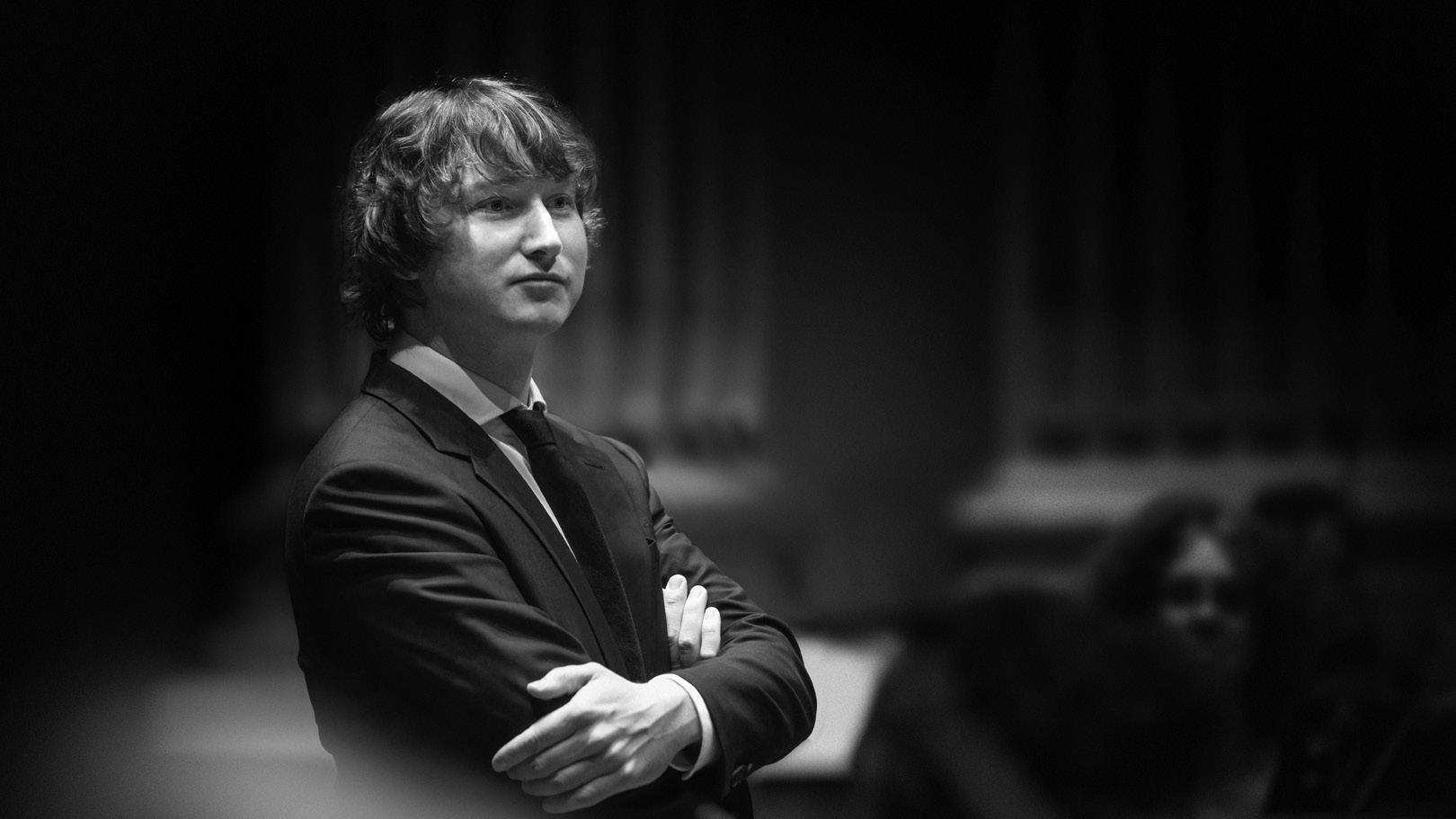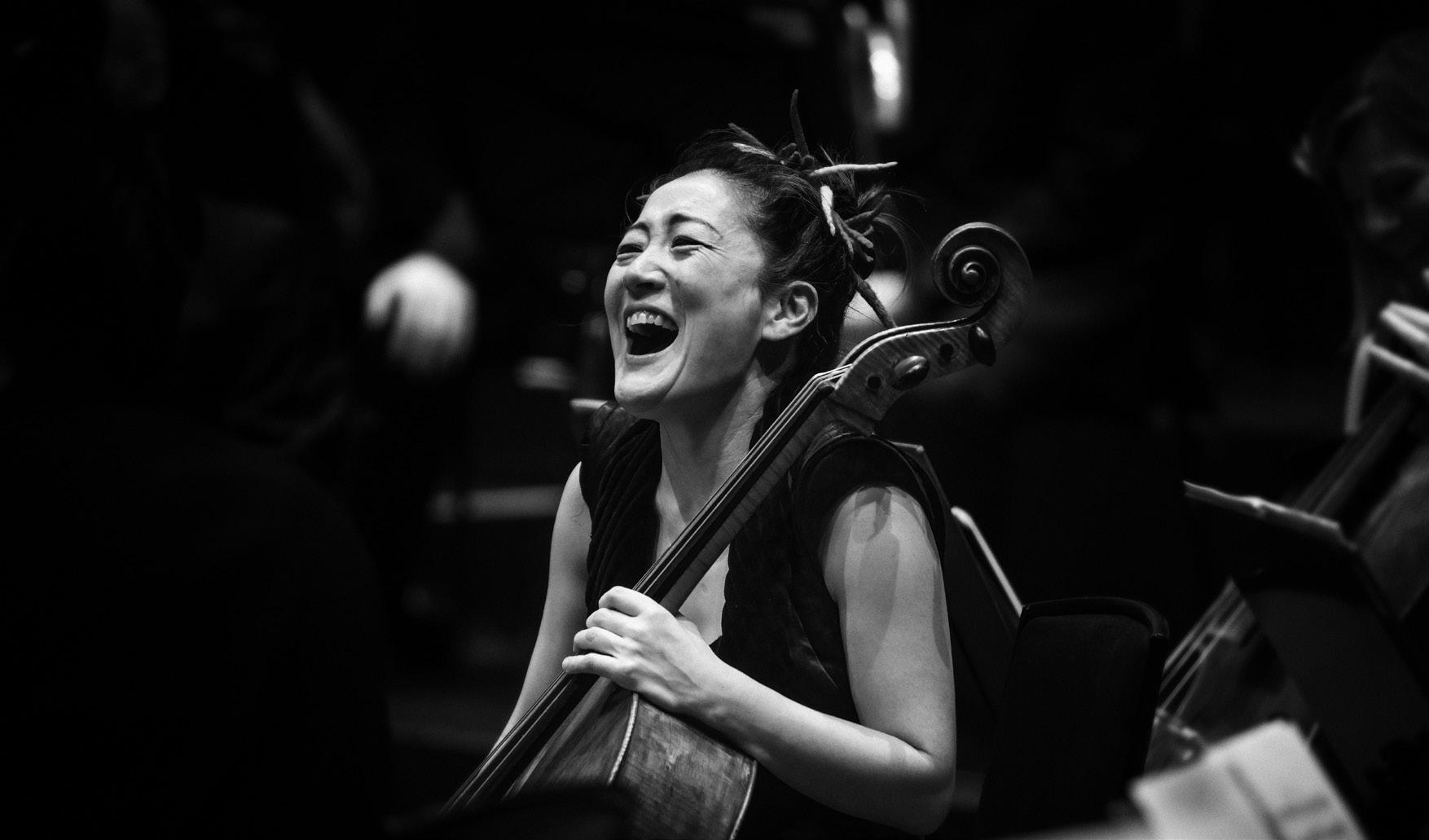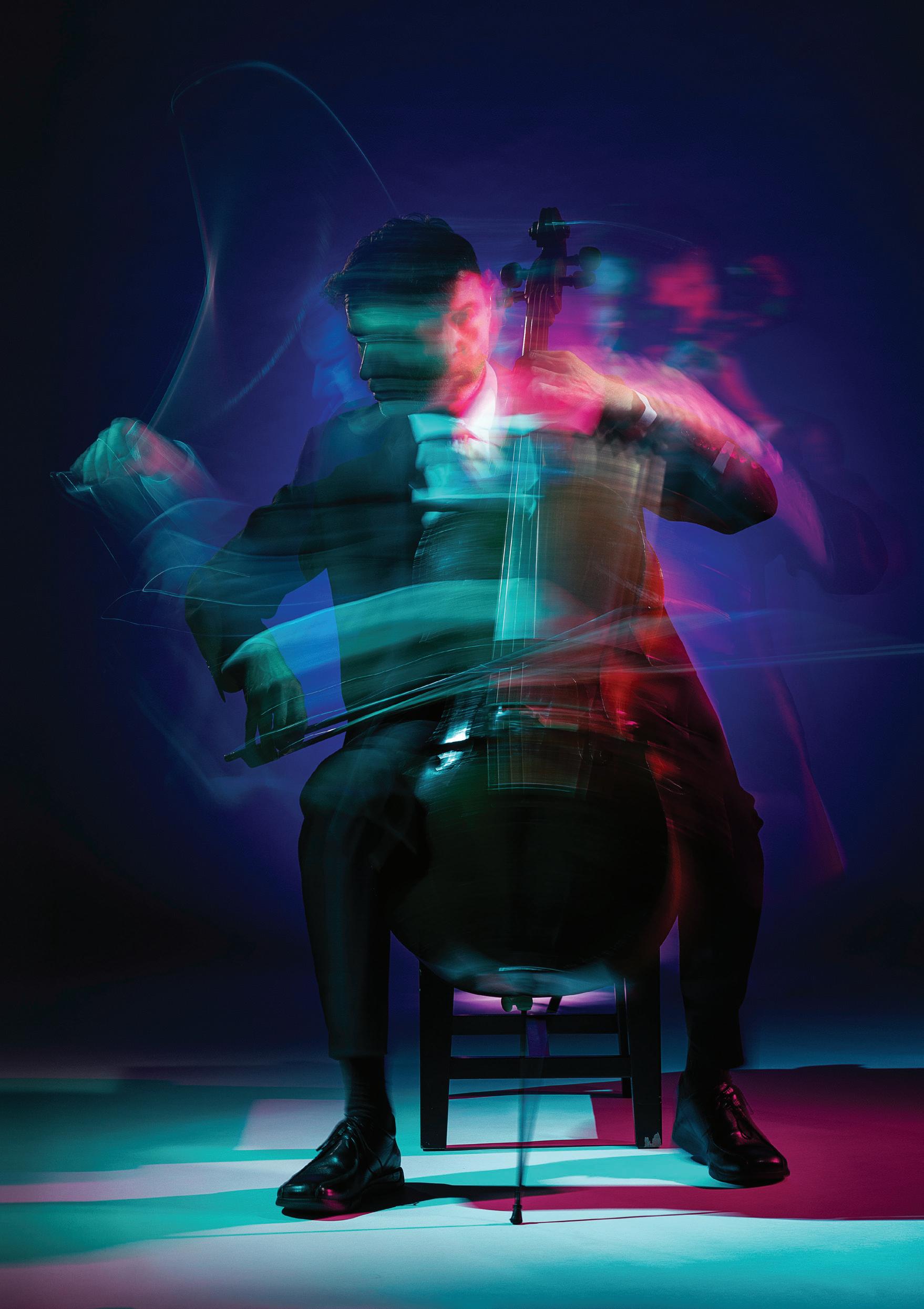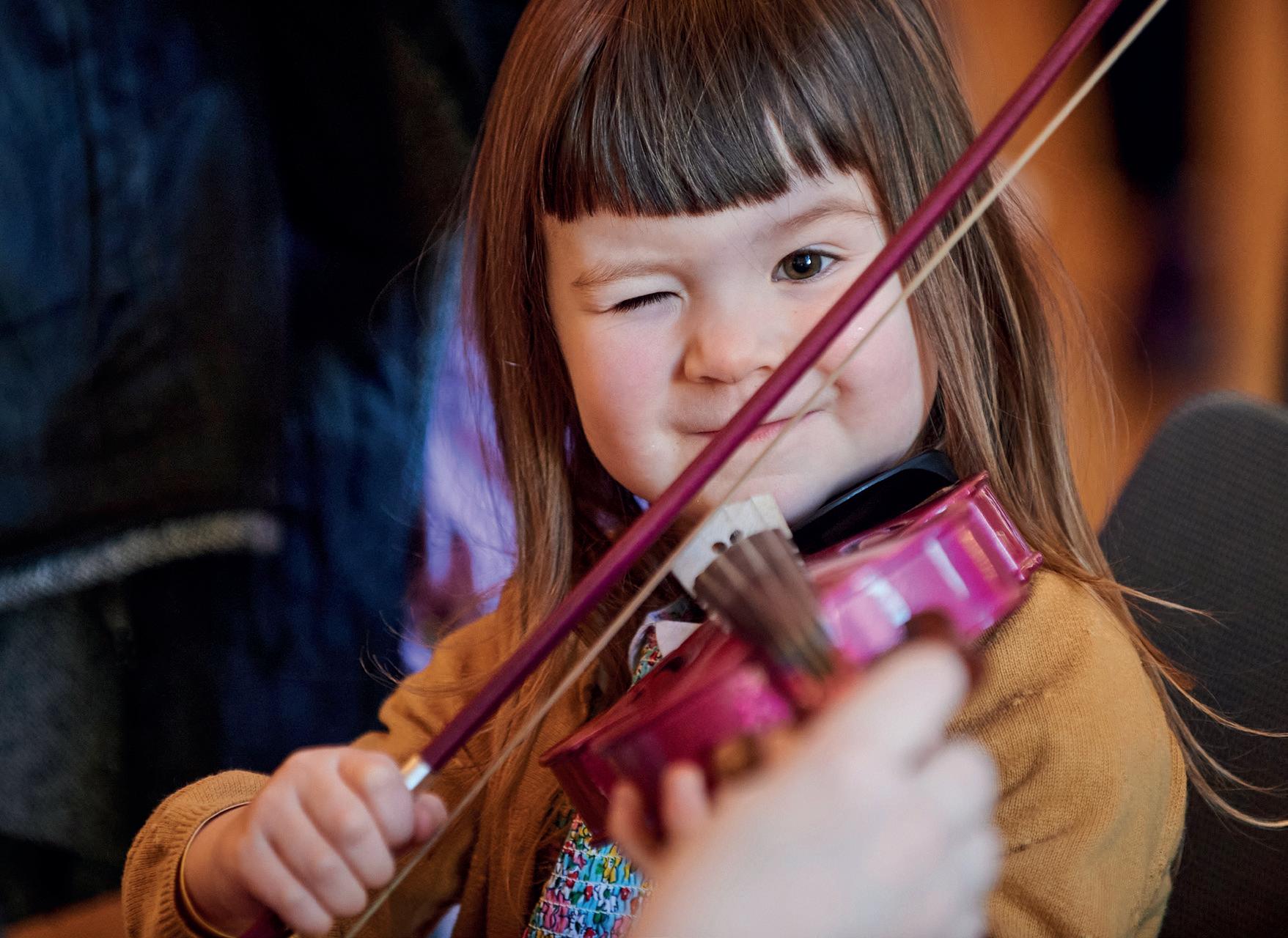BRAHMS REQUIEM
11-12 May 2023



11-12 May 2023


* Please note that this is a change to the previously advertised programme. The SCO is extremely grateful to Louise Alder for replacing Sophie Bevan at very short notice for health reasons.

Thursday 11 May, 7.30pm Usher Hall, Edinburgh
Friday 12 May, 7.30pm City Halls, Glasgow
Brahms Ein deutsches Requiem (A German Requiem)
Please note there will be no interval in this concert.
Maxim Emelyanychev Conductor

* Louise Alder Soprano
Hanno Müller-Brachmann Bass Baritone
SCO Chorus
Gregory Batsleer Chorus Director
Maxim Emelyanychev
The SCO is extremely grateful to the Scottish Government and to the City of Edinburgh Council for their continued support. We are also indebted to our Business Partners, all of the charitable trusts, foundations and lottery funders who support our projects, and to the very many individuals who are kind enough to give us financial support and who enable us to do so much. Each and every donation makes a difference and we truly appreciate it.
Core Funder Authority Learning Partner Benefactor Local Creative

Delivered by
 Su-a Lee
Sub-Principal Cello
Su-a Lee
Sub-Principal Cello
Diamond
Lucinda and Hew Bruce-Gardyne
Malcolm and Avril Gourlay
John and Jane Griffiths
James and Felicity Ivory
Christine Lessels
Clair and Vincent Ryan
Alan and Sue Warner
Platinum
David Caldwell in memory of Ann
Tom and Alison Cunningham
Dr Peter Williamson and Ms Margaret Duffy
Judith and David Halkerston
J Douglas Home
Audrey Hopkins
David and Elizabeth Hudson
Dr and Mrs Peter Jackson
Dr Daniel Lamont
Chris and Gill Masters
Duncan and Una McGhie
Anne-Marie McQueen
James F Muirhead
Patrick and Susan Prenter
Mr and Mrs J Reid
Martin and Mairi Ritchie
Elaine Ross
Hilary E Ross
George Rubienski
Jill and Brian Sandford
Michael and Elizabeth Sudlow
Robert and Elizabeth Turcan
Tom and Natalie Usher
Finlay and Lynn Williamson
Ruth Woodburn
Lord Matthew Clarke
James and Caroline Denison-Pender
Andrew and Kirsty Desson
David and Sheila Ferrier
Chris and Claire Fletcher
James Friend
Iain Gow
Christopher and Kathleen Haddow
Ian Hutton
Gordon Kirk
Robert Mackay and Philip Whitley
Mike and Karen Mair
Anne McAlister and Philip Sawyer
Gavin McEwan
Roy and Svend McEwan-Brown
John and Liz Murphy
Alison and Stephen Rawles
Andrew Robinson
Ian S Swanson
John-Paul and Joanna Temperley
Anne Usher
Catherine Wilson
Neil and Philippa Woodcock
Georgina Wright
Bruce and Lynda Wyer
Roy Alexander
Joseph I Anderson
Pamela Andrews and Alan Norton
Dr Peter Armit
William Armstrong
Fiona and Neil Ballantyne
Timothy Barnes and Janet Sidaway
The Batsleer Family
Jack Bogle
Jane Borland
Michael and Jane Boyle
Mary Brady
Elizabeth Brittin
John Brownlie
Laura Buist
Robert Burns
Sheila Colvin
Lorn and Camilla Cowie
Lord and Lady Cullen of Whitekirk
Adam and Lesley Cumming
Jo and Christine Danbolt
Dr Wilma Dickson
Dr and Mrs Alan Falconer
Sheila Ferguson
Dr J W E Forrester
Dr William Fortescue
Jeanette Gilchrist
David Gilmour
Dr David Grant
Margaret Green
Andrew Hadden
J Martin Haldane
Ronnie and Ann Hanna
Ruth Hannah
Robin Harding
Roderick Hart
Norman Hazelton
Ron and Evelynne Hill
Clephane Hume
Tim and Anna Ingold
David and Pamela Jenkins
Catherine Johnstone
Julie and Julian Keanie
Marty Kehoe
Professor Christopher and Mrs Alison Kelnar
Dr and Mrs Ian Laing
Janey and Barrie Lambie
Graham and Elma Leisk
Geoff Lewis
Dorothy A Lunt
Vincent Macaulay
Joan MacDonald
Isobel and Alan MacGillivary
Jo-Anna Marshall
James McClure in memory of Robert Duncan
Gavin McCrone
Michael McGarvie
Brian Miller
James and Helen Moir
Alistair Montgomerie
Margaret Mortimer and Ken Jobling
Andrew Murchison
Hugh and Gillian Nimmo
David and Tanya Parker
Hilary and Bruce Patrick
Maggie Peatfield
John Peutherer in memory of Audrey Peutherer
James S Potter
Alastair Reid
Fiona Reith
Olivia Robinson
Catherine Steel
Ian Szymanski
Michael and Jane Boyle
Douglas and Sandra Tweddle
Margaretha Walker
James Wastle
C S Weir
Bill Welsh
Roderick Wylie
We believe the thrill of live orchestral music should be accessible to everyone, so we aim to keep the price of concert tickets as fair as possible. However, even if a performance were completely sold out, we would not cover the presentation costs.
We are indebted to everyone acknowledged here who gives philanthropic gifts to the SCO of £300 or greater each year, as well as those who prefer to remain anonymous. We are also incredibly thankful to the many individuals not listed who are kind enough to support the Orchestra financially, whether that is regularly or on an ad hoc basis. Every single donation makes a difference and we are truly grateful.
Become a regular donor, from as little as £5 a month, by contacting Hannah Wilkinson on 0131 478 8364 or hannah.wilkinson@sco.org.uk.
Our Principal Conductor’s Circle is made up of individuals who share the SCO’s vision to bring the joy of music to as many people as possible. These individuals are a special part of our musical family, and their commitment and generosity benefit us all – musicians, audiences and creative learning participants alike. We would like to extend our grateful thanks to them for playing such a key part in the future of the SCO.
American Development Fund
Erik Lars Hansen and Vanessa C L Chang
Annual Fund
James and Patricia Cook
Hedley G Wright
International Touring Fund
Gavin and Kate Gemmell
Conductor Emeritus Joseph Swensen
Donald and Louise MacDonald
Chorus Director Gregory Batsleer
Anne McFarlane
Principal Second Violin
Marcus Barcham Stevens
Jo and Alison Elliot
Principal Viola Max Mandel
Kenneth and Martha Barker
Viola Steve King
Sir Ewan and Lady Brown
Principal Cello Philip Higham
The Thomas Family
Cello Donald Gillan
Professor Sue Lightman
Productions Fund
The Usher Family
Bill and Celia Carman
Anny and Bobby White
Visiting Artists Fund
Colin and Sue Buchan
Harry and Carol Nimmo
Anne and Matthew Richards
Cello Eric de Wit
Jasmine Macquaker Charitable Fund
Principal Double Bass Nikita Naumov
Caroline Hahn and Richard Neville-Towle
Principal Flute André Cebrián
Claire and Mark Urquhart
Principal Oboe Robin Williams
Hedley G Wright
Principal Clarinet Maximiliano Martín
Stuart and Alison Paul
Principal Bassoon Cerys Ambrose-Evans
Claire and Anthony Tait
Principal Timpani Louise Lewis Goodwin
Geoff and Mary Ball
First Violin
Maia Cabeza
Elizabeth Wexler
Helena Buckie
Kana Kawashima
Aisling O’Dea
Siún Milne
Amira Bedrush-McDonald
Sarah Bevan-Baker
Catherine James
Second Violin
Marcus Barcham Stevens
Gordon Bragg
Rachel Spencer
Michelle Dierx
Niamh Lyons
Rachel Smith
Stewart Webster
Kristin Deeken
Gongbo Jiang
Viola
Clare Finnimore
Jessica Beeston
Brian Schiele
Steve King
Liam Brolly
Rebecca Wexler
Tom Hankey
Nancy Johnson
Cello
Philip Higham
Su-a Lee
Donald Gillan
Eric de Wit
Kim Vaughan
Christoff Fourie
Bass
Nikita Naumov
Louis van der Mespel
Margarida Castro
Adrian Bornet
Flute
André Cebrián
Marta Gómez
Piccolo
Adam Richardson
Oboe
Robin Williams
Katherine Bryer
Clarinet

Maximiliano Martín
Scott Lygate
Bassoon
Information correct at the time of going to print
Horn
Martin Gericks
Harry Johnstone
Anna Drysdale
Rachel Brady
Trumpet
Peter Franks
Shaun Harrold
Trombone
Duncan Wilson
Nigel Cox
Alan Adams
Tuba
Craig Anderson
Timpani
Louise Lewis Goodwin
Harp
Eleanor Hudson
Organ
Michael Bawtree
Cerys Ambrose-Evans
Alison Green
Contrabassoon
Andrew Watson
Maximiliano Martín Principal ClarinetBrahms (1833-1897)
Ein deutsches Requiem, Op 45 (1865–1868)
I. Selig sind, die da Leid tragen
II. Denn alles Fleisch es ist wie Gras
III. Herr, lehre doch mich
IV. Wie lieblich sind deine Wohnungen
V. Ihr habt nun Traurigkeit
VI. Denn wir haben hie keine bleibende Statt
VII. Selig sind die Toten
Johannes Brahms wasn’t a religious man. Despite his traditional Protestant upbringing, and despite faithfully reading the Bible throughout his life –for consolation and insight, he said – he described himself as an agnostic and a humanist. He even admitted to his biographer Max Kalbeck in the last year of his life that he had never believed in life after death. So why would he write a Christian mass for the dead? To answer that, we need to look at both the background and the unusual form of Ein deutsches Requiem.
Brahms composed the work from 1865 to 1868, when he was in his mid-30s. In other words, this isn’t the work of an old man contemplating his own mortality. Indeed, the piece’s origins go back even further, to 1857, the year after the tragic early death of Brahms’ great friend and mentor Robert Schumann. It was Schumann who had hailed Brahms in print as ‘the saviour of German music’, and it was to the Schumanns – Robert and his wife Clara – that the young Brahms looked for constructive criticism of his music, as well as encouragement and compositional inspiration.
Following Schumann’s death, Brahms began work on a symphony. He never completed it, but he resurrected its slow movement for a choral work, ‘Denn alles Fleisch, es ist wie Gras’, which later became the second movement of Ein deutsches Requiem. In some senses, at least, Brahms began his Requiem with the memory of his cherished champion fresh in his mind.
It was another death – of his beloved mother in February 1865 – and Brahms’
subsequent period of deep mourning that spurred the composer on to resume work on what would become Ein deutsches Requiem. He completed three of its movements before the end of the year. In many ways, therefore, the work can be seen as a memorial to two of the most influential people in Brahms’s life: his biological mother and, we could plausibly argue, his artistic father.
The piece’s first three movements were premiered in Vienna in December 1867, and the first performance of a sixmovement version (missing what’s now the fifth movement) was given on Good Friday 1868 in Bremen Cathedral. The first performance of the work in its final version took place in February 1869 at the Leipzig Gewandhaus, to great acclaim: the piece was performed more than 20 times throughout Europe in the year following its premiere, and its success catapulted Brahms to international fame.
But what of its unusual title? Brahms didn’t intend to convey any narrow-minded nationalism in his Requiem. Instead, to him, it was a ‘German’ Requiem simply because its text was in his native tongue rather than in Latin. (In fact, he told the director of music at Bremen Cathedral that he would happily have called the work ‘A Human Requiem’.)
But it’s not quite as simple as just a choice of language. The texts that Brahms himself selected from the German Lutheran Bible stand in stark contrast to the traditional words of the Catholic Requiem. There’s no mention of the horrors of the Last Judgement, nor any pleas for mercy from God or prayers for the dead. Indeed, there’s only a passing reference (in the final movement) to redemption through the death of Christ. While the Latin Requiem text focuses on the dead, Brahms’ text selection is aimed very much at the living, offering encouragement and hope to those

Inmanyways, therefore,theworkcan beseenasamemorialto twoofthemostinfluential peopleinBrahms’life: hisbiologicalmotherand, wecouldplausiblyargue, hisartisticfather.Johannes Brahms c. 1866
grieving, and presenting God as a source of comfort. Brahms saw the work as providing a universal, non-denominational response to the inevitability and sorrow of death. His piece charts a journey from anxiety to comfort, and each of its seven movements ends in a mood of confidence or loving promise.
Not everybody approved, of course. So worried were the clergy at Bremen Cathedral by Ein deutsche Requiem’s lack of Christian dogma that they insisted on adding the aria ‘I know that my redeemer liveth’ from Handel’s Messiah to the 1868 performance. Critic George Bernard Shaw was less than impressed by the work, writing: ‘It could only have come from the establishment of a first-class undertaker.’ And Richard Wagner, Brahms’ great rival, was outraged by what he saw as the bourgeois Protestant ethics of the piece. Brahms refused to be drawn into a fight, though: in response, he simply praised Wagner as a composer of genius.
The influence of Ein deutsches Requiem has been profound. Its focus on consolation and comfort can be felt in later Requiems by Duruflé and Fauré, and the freedom with which Brahms approached his text is even echoed in such a forward-looking work as Britten’s War Requiem. Rather than staying within the confines of tradition, in offering his personal message of hope and comfort at a time of sorrow – a feeling he knew well himself – Brahms created a work of glowing warmth and universal relevance.
like phrases, and, aside from a couple of more animated episodes, the movement maintains its opening mood of restraint and consolation throughout.
Beginning as a slow-moving funeral march with a distinctive timpani rhythm, the second movement considers the transience of human life, building to two climaxes as if the mourning procession were passing by in front of us. The pace suddenly quickens, however, as the chorus reports the word of God, and the sombre atmosphere of its opening is replaced by one of unbridled joy.
The bass soloist delivers a troubled recitative on the impermanence of existence in the third movement, with interjections from the chorus, before a sudden swerve into the major as the chorus explains that all hope is with God. The brief fourth movement is a gently flowing chorale yearning for everlasting life in the house of God, and in the fifth movement, the soprano soloist ponders current sorrow and future joy in music of gentle acceptance.
The sixth movement is the closest Brahms comes to depicting the horrors of the Last Judgement, in an anxious opening for bass soloist and chorus. A sudden change to the major marks God’s victory over death, however, and the movement ends with a celebratory fugue.
The first movement is a gentle lament for those in mourning, beginning with a caressing melody that goes on to form the basis for the rest of the movement.
The chorus enters in prayerful, hymn-
There’s a distinctly Bachian feel to the opening of the seventh movement, which quotes from the earlier composer’s St Matthew Passion in its orchestral writing. It’s a broad, expansive movement that offers comfort and reassurance to the dead, ending in peace and acceptance.
© David KettleBrahms (1833-1897)
Ein deutsches Requiem, Op 45 (1865-68)
Matthew 5:4
Selig sind, die da Leid tragen, denn sie sollen getröstet werden.
Psalm 126:5,6
Die mit Tränen säen, werden mit Freuden ernten. Sie gehen hin und weinen und tragen edlen Samen, und kommen mit Freuden und bringen ihre Garben.
1 Peter 1:24
Denn alles Fleisch, es ist wie Gras, und alle Herrlichkeit des Menschen wie des Grases Blumen. Das Gras ist verdorret und die Blume abgefallen.
James 5:7
So seid nun geduldig, lieben Brüder, bis auf die Zukunft des Herrn. Siehe, ein Ackermann wartet auf die köstliche Frucht der Erde und ist geduldig darüber, bis er empfahe den Morgenregen und Abendregen.
1 Peter 1:25
Aber des Herrn Wort bleibet in Ewigkeit.
Isaiah 35:10
Die Erlöseten des Herrn werden wieder kommen, und gen Zion kommen mit Jauchzen; ewige Freude wird über ihrem Haupte sein; Freude und Wonne werden sie ergreifen und Schmerz und Seufzen wird weg müssen.
Matthew 5:4
Blessed are they that mourn, for they shall be comforted.
Psalm 126:5,6
They that sow in tears shall reap in joy. He that goeth forth and weepeth, bearing precious seed, shall doubtless come again with rejoicing, bringing his sheaves with him.
1 Peter 1:24
For all flesh is as grass, and all the glory of man as the flower of grass. The grass withereth, and the flower thereof falleth away.
James 5:7
Be patient therefore, brethren, unto the coming of the Lord. Behold, the husbandmen waiteth for the precious fruit of the earth, and hath long patience for it, until he receive the morning and evening rain.
1 Peter 1:25
But the word of the Lord endureth for ever.
Isaiah 35:10
And the ransomed of the Lord shall return, and come to Zion with songs and everlasting joy upon their heads: they shall obtain joy and gladness, and sorrow and sighing shall flee away.
Psalm 39:4-7
Herr, lehre doch mich, dass ein Ende mit mir haben muss, und mein Leben ein Ziel hat, und ich davon muss. Siehe, meine Tage sind einer Handbreit vor dir, und mein Leben ist wie nichts vor dir. Ach, wie gar nichts sind alle Menschen, die doch so sicher leben. Sie gehen daher wie ein Schemen, und machen ihnen viel vergebliche Unruhe; sie sammeln und wissen nicht wer es kriegen vird. Nun Herr, wes soll ich mich trösten? Ich hoffe auf dich.
Wisdom of Solomon 3:1
Der Gerechten Seelen sind in Gottes Hand und keine Qual rühret sie an.
Psalm 84:1,2,4
Wie lieblich sind deine Wohnungen, Herr Zebaoth! Meine Seele verlanget und sehnet sich nach den Vorhöfen des Herrn; mein Leib und Seele freuen sich in dem lebendigen Gott. Wohl denen, die in deinem Hause wohnen, die loben dich immerdar.
John 16:22
Ihr habt nun Traurigkeit; aber ich will euch wieder sehen und euer Herz soll sich freuen und eure Freude soll niemand von euch nehmen.
Ecclesiasticus 51:27
Sehet mich an: Ich habe eine kleine Zeit Mühe und Arbeit gehabt und habe großen Trost funden.
Isaiah 66:13
Ich will euch trösten, wie einen seine Mutter tröstet.
Psalm 39:4-7
Lord, make me to know mine end, and the measure of my days, what it is: that I may know how frail I am. Behold, thou hast made my days as an handbreadth; and my life is as nothing before thee. Surely every man walketh in a vain show: surely they are disquieted in vain: he heapeth up riches, and knoweth not who shall gather them. And now, Lord, how can I console myself? my hope is in thee.
Wisdom of Solomon 3:1
But the souls of the righteous are in the hand of God, and there shall no torment touch them.
Psalm 84:1,2,4
How lovely are thy dwelling places, O Lord of hosts! My soul longeth, yea, even fainteth for the courts of the Lord: my heart and my flesh rejoice in for the living God. Blessed are they that dwell in thy house: they will praise thee forever.
V
John 16:22
And ye now therefore have sorrow; but I will see you again, and your heart shall rejoice, and your joy no man shall take from you.
Ecclesiasticus 51:27
Ye see how for a little while I labour and toil, yet have I found much consolation.
Isaiah 66:13
As one whom his mother comforteth, so will I comfort you.
VI
Hebrews 13:14
Denn wir haben hie keine bleibende Statt, sondern die zukünftige suchen wir.
1 Corinthians 15:51,52,54,55
Siehe, ich sage euch ein Geheimnis: Wir werden nicht alle entschlafen, wir werden aber alle verwandelt werden; und dasselbige plötzlich, in einem Augenblick, zu der Zeit der letzten Posaune. Denn es wird die Posaune schallen, und die Toten werden auferstehen unverweslich, und wir werden verwandelt werden. Dann wird erfüllet werden das Wort, das geschrieben steht: Der Tod is verschlungen in den Sieg. Tod, wo ist dein Stachel? Hölle, wo ist dein Sieg?
Revelation 4:11
Herr, du bist würdig zu nehmen Preis und Ehre und Kraft, denn du hast alle Dinge geschaffen, und durch deinen Willen haben,sie das Wesen und sind geschaffen.
VII
Revelation 14:13
Selig sind die Toten, die in dem Herren sterben, von nun an. Ja, der Geist spricht, dass sie ruhen von ihrer Arbeit; denn ihre Werke folgen ihnen nach.
VI
Hebrews 13:14
For here have we no continuing city, but we seek one to come.
1 Corinthians 15:51,52,54,55
Behold, I show you a mystery: We shall not all sleep, but we shall all be changed. In a moment, in the twinkling of an eye, at the last trump: for the trumpet shall sound, and the dead shall be raised incorruptible, and we shall be changed. . . . then shall be brought to pass the saying that is written: Death is swallowed up in victory. O death, where is thy sting? O grave, where is thy victory?
Revelation 4:11
Thou art worthy, O Lord, to receive glory and honour and power; for thou hast created all things, and for thy pleasure they are and were created.
VII
Revelation 14:13
Blessed are the dead which die in the Lord from henceforth. Yea, saith the Spirit, that they may rest from their labours; and their works do follow them.

At the Scottish Chamber Orchestra Maxim Emelyanychev follows in the footsteps of just five previous Principal Conductors in the Orchestra’s 49-year history; Roderick Brydon (1974-1983), Jukka-Pekka Saraste (1987-1991), Ivor Bolton (1994-1996), Joseph Swensen (1996-2005) and Robin Ticciati (20092018).
Recent highlights have included debuts with some of the most prestigious international orchestras: Accademia Nazionale di Santa Cecilia, Royal Concertgebouw Orchestra, Rotterdam Philharmonic, Deutsches Symphonie-Orchester, Toronto Symphony and Swedish Radio Symphony Orchestra, as well as returns to the Antwerp Symphony, the Orchestre National du Capitole de Toulouse, the Royal Liverpool Philharmonic and a European tour with the Scottish Chamber Orchestra, followed by appearances at the Radio-France Montpellier Festival and the Edinburgh International Festival.
In October 2022, Maxim toured the USA with the Scottish Chamber Orchestra and made his debut with the Berlin Philharmonic. Other touring in 2022/23 includes the New Japan Philharmonic, the Osaka Kansai Philharmonic, the Bergen Philharmonic Orchestra, the Helsinki Radio Symphony Orchestra, the Czech Philharmonic Orchestra and the Rotterdam Philharmonic Orchestra. He also returns to the Orchestre National du Capitole de Toulouse and to the Royal Opera House in Mozart's Die Zauberflöte.
He regularly collaborates with renowned artists such as Max Emanuel Cenčić, Patrizia Ciofi, Joyce DiDonato, Franco Fagioli, Richard Goode, Sophie Karthäuser, Stephen Hough, Katia and Marielle Labèque, Marie-Nicole Lemieux, Julia Lezhneva, Alexei Lubimov, Riccardo Minasi, Xavier Sabata and Dmitry Sinkovsky.
Maxim is also a highly respected chamber musician. His most recent recording, of Brahms Violin Sonatas with long-time collaborator and friend Aylen Pritchin, was released on Aparté in December 2021 and has attracted outstanding reviews internationally. With the Scottish Chamber Orchestra, Maxim has recorded Schubert Symphony No 9 – the symphony with which he made his debut with the orchestra – which was released on Linn Records in November 2019.
For full biography please visit sco.org.uk
Louise Alder studied at the Royal College of Music International Opera School where she was the inaugural Kiri Te Kanawa Scholar.
Her engagements in the 2022/23 season include Fiordiligi in a new production of Così fan tutte for the Bayerische Staatsoper, Munich, and a return to the Glyndebourne Festival as Anne Trulove The Rake’s Progress. On the concert platform she sings Mahler’s Symphony No 2 with the London Symphony Orchestra/Sir Simon Rattle and his Symphony No 4 with the Bayerisches Statsorchester/Vladimir Jurowski, Janáček’s The Cunning Little Vixen with Accademia Nazionale di Santa Cecilia/Jakub Hrůša and Mozart’s Exsultate, jubilate with the Berlin Philharmonic Orchestra/Kirill Petrenko.

Previous highlights have included Susanna for the Wiener Staatsoper, the Bayerische Staatsoper, Munich and the Opernhaus Zürich; Zerlina Don Giovanni for the Royal Opera House, Covent Garden and the Teatro Real in Madrid; Gretel Hänsel und Gretel and Marzelline Fidelio for the Bayerische Staatsoper, Munich; Sophie Der Rosenkavalier for the Wiener Staatsoper and the Glyndebourne Festival and Cleopatra Giulio Cesare for the Theater an der Wien and Oper Frankfurt.
Her recital appearances include the BBC Proms, Graz Musikverein and the Oper Frankfurt with Gary Matthewman, Wigmore Hall with both Joseph Middleton and James Baillieu, the Schubertiade Schwarzenberg with Daniel Heide and the Oxford Lieder Festival and Fundación Privada Victoria de los Ángeles in Barcelona with Sholto Kynoch.
For full biography please visit sco.org.uk
Hanno has sung with the London, Radio France, Wiener and Berliner Philharmonic Orchestras, the Berlin and Dresden Staatskapelle, Orchestra National de France, and the Boston and Los Angeles Symphony Orchestras under conductors including Thielemann, Haitink, Barenboim, Welser-Möst, Harnoncourt, Luisi, von Dohnányi, Labadie, Nelsons and Gardiner. He made his Carnegie Hall debut with the Chicago Symphony Orchestra under Barenboim. Hanno was a member of the ensemble of the Berlin State Opera from 1998 until 2011 and has also appeared at the Bayerische, Hamburgische and Wiener Staatsoper and San Francisco Opera.

He has given recitals in Berlin, Graz, Amsterdam, Hamburg, Paris and Lausanne, at London’s Wigmore Hall and at the Schwarzenberg Schubertiade, Berlin Festwochen and the Edinburgh Festival.
Hanno is a Professor at the Musikhochschule Karlsruhe.
For full biography please visit sco.org.uk
Gregory Batsleer is acknowledged as one of the leading choral conductors of his generation, winning widespread recognition for his creativity and vision. Since taking on the role of SCO Chorus Director in 2009 he has led the development of the Chorus, overseeing vocal coaching, the SCO Young Singers’ Programme and the emergence of regular a capella concerts. As well as preparing the Chorus for regular performances with the Orchestra, he has directed their recent successful appearances at the East Neuk, Glasgow Cathedral and St Andrews Voices Festivals, at Greyfriars Kirk, and on the SCO’s 2022 Summer Tour.
In 2021 Gregory took up the position of Festival Director for the London Handel Festival. He leads the programming and development of the Festival, fulfilling its mission to bring Handel’s music to the widest possible audiences. Since 2017 he has been Artistic Director of Huddersfield Choral Society and was Chorus Director with the Royal Scottish National Orchestra from 2015 - 2021.

As Guest Conductor Gregory has worked with many of the UK’s leading orchestras and ensembles. Recent highlights include performances with the Royal Northern Sinfonia, RSNO, National Youth Choir of Great Britain, Orchestra of Opera North, Manchester Camerata, Royal Liverpool Philharmonic Orchestra, English Chamber Orchestra and London Symphony Chorus, as well as SCO.
From 2012 to 2017, he was Artistic Director of the National Portrait Gallery’s Choir in Residence programme, the first ever in-house music programme of any gallery or museum in the world. He has curated and devised performances for the Southbank Centre, Wilderness Festival and Latitude and collaborated with leading cultural figures across a variety of different art forms. Gregory is the co-founder and conductor of Festival Voices, a versatile ensemble dedicated to cross-art collaboration.
As a non-executive director, Gregory sits on the boards of Manchester Camerata and Charades Theatre Company. His outstanding work as a choral director was recognised with the 2015 Arts Foundation’s first-ever Fellowship in Choral Conducting.
Gregory’s Chair is kindly supported by Anne McFarlane
The Scottish Chamber Orchestra Chorus, under the direction of Gregory Batsleer since 2009, has built a reputation as one of Scotland’s most vibrant and versatile choirs. Widely regarded as one of the finest orchestral choruses in the UK, it celebrated its 30th anniversary in 2021.

Members enjoy the unique opportunity to perform with one of the world’s leading chamber orchestras, working with international conductors including Maxim Emelyanychev, Harry Christophers, Richard Egarr, Andrew Manze, John Storgårds and Sir James MacMillan.
The Chorus appears regularly with the Orchestra in Scotland’s major cities. Recent concerts have covered a wide range of music including Handel Coronation Anthems, MacMillan Seven Last Words from the Cross, Stravinsky Mass, Handel Messiah and Theodora, Haydn Seasons and Creation, a rare performance of Vaughan Williams Flos Campi and the premiere of The Years by Anna Clyne, SCO Associate Composer 2019-2022.
The SCO Chorus also appears on its own in a cappella repertoire, both digital and live, including an acclaimed performance of Tallis’ Spem in Alium at Greyfriars Kirk and concerts as part of the SCO’s 2022 Summer Tour including the premiere of Anna Clyne’s The Heart of Night. Its annual Christmas concerts have quickly established themselves as a Season highlight.
Other notable out-of-Season appearances have included a critically-acclaimed debut at the BBC Proms in Handel’s Jephtha in 2019 and a dramatised performance of Parry’s Songs of Farewell in 2017, devised by stage director Jack Furness and Chorus Director Gregory Batsleer. The Chorus will join the SCO and Maxim Emelyanychev for Mendelssohn's Elijah at the 2023 BBC Proms.
Our Young Singers' Programme was established in 2015 to nurture and develop aspiring young singers. It is designed for young people with a high level of choral experience and ambitions to further their singing with a world-class ensemble.
Further information at sco.org.uk
The SCO Chorus Young Singers' Programme is kindly supported by the Baird Educational Trust.
Gregory Batsleer
Chorus Director
Stuart Hope
Associate Chorusmaster
Alan Beck
Voice Coach
Emma Morwood
Voice Coach
Norbert Meyn
Language Coach
Susan White
Chorus Manager
* Young Singers' Programme
SOPRANO
Kirstin Anderson
Naomi Black
Nancy Burns
Joanna Burns
Morven Chisholm
Mairi Day
Lucy Forde
Emily Gifford
Nicola Henderson
Lisa Johnston
Lesley Mair
Katie McGlew
Jenny Nex
Annike Petin
Alison Robson
Alison Williams
Emily Zehetmayr*
ALTO
Shona Banks
Dinah Bourne
Sarah Campbell
Gill Cloke
Judith Colman
Liberty Emeny
Anne Gallacher
Jennie Gardner
Claire Goodenough
Holly Gowen*
Anne Grindley
Caroline Hahn
Fiona Haldane
Lorna Htet-Khin
Melissa Humphreys
Rachel Kemp
Elizabeth McColl
Charlotte Perkins
Jan Raitt
Linda Ruxton
Anna Yule
TENOR
Matthew Andrews
Andrew Carvel
David Ferrier
Colin French
Peter Hanman
Fraser Macdonald*
Keith Main
David Nelson
Matt Norriss
Michael Scanlon
Paul Vaughan
Alexander Vonderschmidt
BASS
Mathew Brown
Gavin Easton
Robin Hiley
David Ireland
Sandy Matheson
Richard Murphy
Kenneth Murray
Douglas Nicholson
David Paterson
Jonathan Pryce
Fraser Riddell
Peter Silver
Stephen Todd
Roderick Wylie
Information correct at the time of going to print
The internationally celebrated Scottish Chamber Orchestra is one of Scotland’s National Performing Companies.

Formed in 1974 and core funded by the Scottish Government, the SCO aims to provide as many opportunities as possible for people to hear great music by touring the length and breadth of Scotland, appearing regularly at major national and international festivals and by touring internationally as proud ambassadors for Scottish cultural excellence.
Making a significant contribution to Scottish life beyond the concert platform, the Orchestra works in schools, universities, colleges, hospitals, care homes, places of work and community centres through its extensive Creative Learning programme. The SCO is also proud to engage with online audiences across the globe via its innovative Digital Season.
An exciting new chapter for the SCO began in September 2019 with the arrival of dynamic young conductor Maxim Emelyanychev as the Orchestra’s Principal Conductor.
The SCO and Emelyanychev released their first album together (Linn Records) in November 2019 to widespread critical acclaim. The repertoire - Schubert’s Symphony No. 9 in C major ‘The Great’ –is the first symphony Emelyanychev performed with the Orchestra in March 2018.
The SCO also has long-standing associations with many eminent guest conductors and directors including Conductor Emeritus Joseph Swensen, François Leleux, Pekka Kuusisto, Nicola Benedetti, Richard Egarr, Andrew Manze and John Storgårds.
The Orchestra enjoys close relationships with many leading composers and has commissioned almost 200 new works, including pieces by the late Sir Peter Maxwell Davies, Sir James MacMillan, Sally Beamish, Martin Suckling, Einojuhani Rautavaara, Karin Rehnqvist, Mark-Anthony Turnage, Nico Muhly, Anna Clyne and Associate Composer Jay Capperauld.
For full biography please visit sco.org.uk




Generations of our clients have trusted us to help build and preserve their wealth.

For over 250 years, they have relied on our expert experience to help make sense of a changing world. During that time we’ve earned an enviable reputation for a truly personal approach to managing wealth.



For those with over £250,000 to invest we o er a dedicated investment manager, with a cost structure and level of service, that generates exceptional client loyalty.


Find out more about investing with us today: Murray Clark at our Edinburgh o ce on 0131 221 8500, Gordon Ferguson at our Glasgow o ce on 0141 222 4000 or visit www.quiltercheviot.com



A warm welcome to everyone who has recently joined our family of donors, and a big thank you to everyone who is helping to secure our future.
Monthly or annual contributions from our donors make a real difference to the SCO’s ability to budget and plan ahead with more confidence. Each and every contribution is crucial, and your support is truly appreciated.

For more information on how you can become a regular donor, please get in touch with Hannah Wilkinson on 0131 478 8364 or hannah.wilkinson@sco.org.uk.
SCO.ORG.UK/SUPPORT-US